- Home
- Terri Blackstock
Private Justice Page 2
Private Justice Read online
Page 2
If something was wrong next door now, he owed it to them to see if there was anything he could do. Maybe the baby was sick, and he could go to the drugstore for some medicine. Or maybe Tommy just had colic and couldn’t be comforted, in which case Reese could show Martha some of the tricks that his wife had used on their children and grandchildren.
He dusted off his hands, then rinsed them under the faucet on the side of his house and dried them on his pants. He caught a faint whiff of smoke in the air. Someone must be breaking the city ordinance about burning limbs in their yard. Fat Tuesday seemed to give people license to do whatever they wanted, he thought with disdain as he headed down his driveway, cut across the Broussard yard, and trudged up the porch steps to the door. He rang the bell and waited. No answer.
Now that he was closer, he could hear that the baby wasn’t just crying—he was screaming wildly. Reese leaned closer to the door and called, “Martha? Are you there?”
He knocked hard, hurting his arthritic knuckles, then raised his voice. “Martha! It’s Reese Carter, next door. Martha, are you there?”
But all he heard in reply was the baby’s gasping wails against the background of jazz music three blocks away.
The jazz band in front of Mark and the other firemen changed tunes, and some accordions launched into a zydeco tune. Trying to keep himself and the rest of the firemen in the spirit as they waited for their turn to march out onto the parade route, Mark led some of the others in an absurd chorus-line kick dance that fit perfectly with their attire. As he clowned, he scanned the other firemen and wondered how much beer they—and the rest of the parade participants—had already guzzled in the spirit of the festivities. It was only ten o’clock in the morning, yet trays and trays of drafts in plastic cups had been doled out to those waiting to participate.
Some of the wives still milled among the firemen, finishing up the outlandish makeup jobs. Jamie Larkins, with a cup of beer in one hand and an eyeliner pencil in the other, was swaying to the beat as she painted Marty Bledsoe’s face. Susan Ford, a pretty black woman who wouldn’t touch alcohol even if she were dying of thirst, finished Slater Finch’s bare back—on which she’d drawn Betty Boop eyes and lips and applied a fake nose. She saw Mark horsing around and said, “You better stop that sweating, Mark Branning, you hear me?” The sweet demand cut through the laughing voices as Susan approached him with her makeup tray. “Look at you. Your smile is dripping. Our king of choreography is losing his looks.”
“Me? Never,” Mark deadpanned. “You may note that I have the least amount of face paint on. They knew not to mess with a good thing.”
“Either that, or you already fit the bill without it.”
Mark looked wounded. “Susan, you slay me. I believed you when you said I looked like George Clooney.”
“Loony, Mark, not Clooney. And I never mentioned a George.”
He grinned as she reached up with a tissue and wiped the smear from his mouth. “You’re a mean woman, Susan Ford.”
“You bet I am. And don’t you forget it.” Her smile faded as she touched up his face. “By the way, I saw Allie yesterday.”
“Speaking of mean women?” he asked.
She wasn’t amused. “She looked awful lonesome, Mark.”
Again, he was glad that his face paint hid the heat rushing to his cheeks. He didn’t know why every conversation these days seemed to lead directly to Allie. If Allie looked “lonesome,” it was because she’d chosen to be alone. They’d been separated for over two months now, and although neither of them had made a move to file for divorce, there was no movement being made toward a reconciliation, either.
Susan seemed to realize she’d hit a nerve. Reaching up to press a kiss on his painted cheek, she whispered, “Sorry, honey. Didn’t mean to bring you down.”
“It’s okay. No problem.” A bone-thin majorette passed with a tray of beer, and he eyed it this time, wondering if he should drink just one to keep his mood from deflating completely. But Susan was there, as well as others from his church who would pass immediate judgment. He let the tray pass and wished the parade would hurry up and move so he could get the morning over with.
At Midtown Fire Station on Purchase Street, where all of Newpointe’s protective services were located side by side, right across from city hall and the courthouse, Nick Foster paced the bunkroom and rehearsed his sermon for his little church’s midweek service. It was tough being a bivocational pastor, juggling practical and spiritual duties. Sometimes it was impossible to separate his ministry from his profession. Today was one of those times. Whenever he dared to buck the mayor’s authority and refuse to participate in something he believed to be immoral—as he had today—he risked losing his job as a fireman. Without it, he wouldn’t make enough to pay his rent. Though Calvary Bible Church had its share of supporters, there weren’t many families in the body who had much to give. Newpointe, as a whole, was not a wealthy town. Most of the tithes and offerings went to pay for the building they’d built two years ago, plus the missions projects he’d started. There wasn’t much left over for him, which was fine as long as he had firefighting to keep his refrigerator stocked. He lived in a trailer across the street from the church. “The parsonage,” his church called it, even though neither he nor the church owned it.
He got stuck on one of the points in his sermon, went back to his notes, made a quick change, then began pacing again. What did you tell a town whose residents had been brought up on voodoo and Mardi Gras? Even though he’d made it a point to preach a series of sermons on idolatry in the weeks preceding Mardi Gras, he was still astounded at the number of his church members who made themselves part of the infrastructure that upheld the holiday. Half of his congregation was in the parade, and the other half was watching.
He stumbled on the words again and sank onto a bunk, feeling more frustrated than usual. Did it really matter if he got the words right, if no one really listened?
Taking off his wire-rimmed glasses, he dropped his head and stared down between his feet for a moment, feeling the burden of all those souls weighing on his heart. Finally, he closed his eyes and began to pray that God would make him more effective, that he’d open their hearts and ears, that they would see things clearly…
He heard the door slam shut and looked up to see Dan Nichols, one of the other firefighters holding down the skeleton crew.
The tall blonde man was drenched in sweat and breathing hard, but to Nick’s amusement, he went straight to the mirror and checked the receding hairline that seemed such a source of preoccupation to him.
“Has it moved any?” Nick teased.
Dan shot him an annoyed look. He slid the towel off of his neck and began wiping his face. “I wasn’t looking at my hair.”
Nick forced back his grin. Though he knew that he and Dan were considered two of the most eligible bachelors in town, Dan was by far the first choice of most of the single ladies. He was athletic and physically fit, something no one could say about Nick. And Dan had something else Nick didn’t have. Money. Lots of it. He was one of the rare breed of firefighters who didn’t have to work a second job to make ends meet. Dan had come from a wealthy family, had a geology degree, and could have been anything he wanted. But all he’d wanted was to be a fireman.
“You been out jogging?” Nick asked, a little surprised that he’d risk being away from the station when they were understaffed.
“I didn’t go far,” Dan said. “If we’d gotten a call, you would have seen me as soon as you pulled out.”
“So is it crazy out there yet?”
“Gettin’ loud, I’ll say that.” He dropped down on the bunk across from Nick, still panting. “You know—” He hesitated, as if carefully weighing his words. “I know it was right for us to take a stand and not participate in Mardi Gras, but part of me feels like a stick-in-the-mud.”
“Sure, I know,” Nick said. “It’s just a parade, right? No big deal, just a day of fun that’s no harm to anybody. Don’t buy into th
at lie, Dan.”
Dan grinned. “It’s just that everybody’s there. I’m human. I grew up on Mardi Gras. It feels weird not being part of it.”
Nick fought his disappointment. “Tell you the truth, I was surprised you stood with me on this. Why did you?”
Dan patted his shoulder and grinned. “Because you’re right. You know you are.” He stood up. “I think I’ll go take a shower.”
The door opened again as Dan headed for the bathroom, and Craig Barnes, the fire chief, shot in.
“Hey, boss,” Nick said. “Thought you were at the parade.”
“Yeah, I’m going,” he said. “I’m hoping to avoid the blasted makeup. You won’t see Mayor Castor prancing down the street with floppy shoes and a big nose. No, she gets to ride in a convertible and hang on to her dignity, and she expects me to hoof it with a bunch of drunken firefighters whose goal it is to make this department the laughingstock of the town.”
Nick thought of echoing the sentiment, but in this mood, he doubted Craig would appreciate it. The chief wasn’t one to pal around with his subordinates. He rarely vented, but when he did, it was usually meant to be a monologue.
“Where’s everybody, anyway?” Craig demanded as he went to his locker and pulled out his cap. “Don’t tell me you’re the only one here.”
“Dan’s in the shower, and Junior is sweeping out back. You know, Craig, if you didn’t show up, it might make a nice statement.”
“With all those other bozos falling all over themselves to be in the parade? Some statement. No, I’ve go to grin and bear it.” He slammed the locker and started out. “If anybody calls looking for me, tell ’em I’m on my way.”
“Sure thing,” Nick said.
As the fire chief headed back out the door, Nick sighed. So much was being made of so little. The mania itself ought to be a wake-up call to those who made themselves a part of the custom.
But all he could do was preach and pray, and hope that someday, they would start listening.
The city employees’ float, decorated like a pirate’s ship, pulled into the street several positions in front of the firemen, cueing them that it was time to get into formation. Laughter erupted from some of the wives milling among the firemen, some already tipsy, others sober yet giddy as they prepared their husbands for the parade.
Lonesome, Mark thought with contempt. He couldn’t say why Susan’s description had ruined his mood.
He remembered another parade: the July Fourth parade last year, when Allie had been there among them, part of the fire family and the other half of himself. She had dressed like Martha Washington, and he’d been Uncle Sam. It had been a fun day, even in the sweltering heat.
He winced as Jamie Larkins, another fire wife, was swept away on a gale of raucous laughter. Cale, her husband, had been stealing sips from her draft, too, and Mark wondered if the effects would wear off before Cale went on duty tonight. He hoped so. A drunk or hungover firefighter was the last thing they needed on Fat Tuesday.
As the parade began to move, the brass band in front of them kicked into a newer, faster cadence and began dancing their way toward Jacquard Street. The firemen all looked at each other with comical dread before following. Some of them were jollier clowns than others, having been siphoning the beer that had been circulating like water since they’d gotten there that morning. It was the one day each year when the mayor footed the bill for something that wasn’t an absolute necessity. Nick Foster, Mark’s pastor, had protested the use of funds and asked her to spend it on much-needed bulletproof vests for the cops, a new pumper for the fire department, or updated rescue units for the paramedics. But as usual, she paid no attention.
Mark had considered taking Nick’s stand and refusing to be in the parade, but part of him wanted to join in the fun, even though he’d voiced his righteous indignation just for the record. Part of him felt like a hypocrite—pretending to be spiritually offended by the parade even though, as everyone knew, he hadn’t attended church since he and Allie had separated. It wasn’t that he didn’t want to—it was just that it was too uncomfortable with his wife there, all tense and cold, and with all of the members who had been his close friends offering advice that he neither needed nor wanted. If Mark had chosen to follow his pastor’s lead, he was sure Nick would have used their time alone at the station to lecture him, again, about the mistake he was making in letting his marriage fail—as if that were his choice.
In a whirlwind of noise, the siren on the ladder truck behind them went off, and the motorcycles carrying the cops with faces painted like demonic rock stars roared louder. Another siren farther back, presumably from a rescue unit, moaned at migraine-level volume. Mark tried to shake himself out of the depression threatening to close over him; impulsively, he reached for one of the passing trays. He grabbed a draft and threw it back, then crushed the cup in his hand and dropped it to the ground. It did nothing to improve his mood, but he noticed Susan Ford and her husband, Ray—one of Mark’s closest friends and the captain on his shift—watching him with sober, concerned faces. He wished they would both just mind their own business.
As the parade moved, the firemen scuffed onto Jacquard Street in their oversized shoes and undersized ruffled shirts, waving and tossing beads and candy to the cheers and pleas of hyperactive children and intoxicated adults, begging, “Throw me some beads!”
For the sake of goodwill in his community, Mark plastered on a smile and tried to have a good time.
Chapter Two
The baby’s vibrato cries grew hoarse, but the level of urgency in his tone seemed to heighten as Reese Carter banged once again on Martha Broussard’s door. Should he go around back? Maybe Martha was hanging laundry or working in the yard with one of those carry-around stereos with those despicable headphones that young people seemed to love these days. That wasn’t like her, though. Martha wasn’t that young, and she wasn’t that irresponsible.
The smell of smoke grew stronger, and finally his fear that something was terribly wrong overcame his reluctance. He tested the knob, found it unlocked, and pushed the door open.
Feeling as if he were intruding in a place where he had no right to be, he stepped hesitantly inside. “Martha? Is anyone here?”
The baby’s hoarse voice choked out louder and more desperately, so he headed down the hall to the baby’s room.
Martha wasn’t there. The baby’s face was crimson and wet, and his eyes were swollen from the tears. It had been a long time since Reese had picked up a baby, and again he worried that Martha would think he was intruding, but something was obviously wrong. He leaned over the crib and lifted the baby out.
Tommy had been crying too hard to stop, so his pattern changed from screams to hiccup sobs as the old man rocked him. “Martha?” Reese called again.
He carried the baby back down the hall and peered into the living room. There was no sign of her, but a packed diaper bag lay on the floor, some of its contents spilled out. He stepped toward it, peering from the living room into the kitchen. “Martha?”
It was then that he saw the splatters on the blue carpet, the brownish-red spray that was easy to miss at first, then the darker red blotches. He caught his breath.
His heart began to pound painfully against his chest. The baby still cried, and Reese held him tighter as he followed the drops across the carpet and into the kitchen, toward the back door that stood open. His mind raced with possibilities. Maybe she had fallen and hit her head, then gotten up, confused, and wandered outside, where she had passed out in the yard.
He stepped carefully around the blood and pushed open the screen door.
The yard was filling with smoke, and he doubted that it was coming from someone burning tree limbs. He turned back into the kitchen and, with trembling hands, set the baby in the swing and locked the seat belt. As Reese stumbled outside, the baby began to wail again, but he couldn’t go back. There was an old storage building at the back of the Broussard yard, and flames were shooting out of the roof.<
br />
The door to the structure was partially open, and thick smoke poured out. Coughing, he kicked the door open and tried to see inside. Between the lawn mower and a bicycle, he could barely make out the shape of a woman’s legs.
“Martha!” Stomping out the flames over the threshold, he stepped in, reached for her feet, and pulled her out. It wasn’t until she was out of the reach of the flames, lying on the grass, that he was able to see her face.
Martha Broussard had a bullet hole through her forehead.
Reese fell back in horror, then turned and ran, tripping on the step as he rushed into the house for the telephone. The baby kept screaming as he grabbed the phone and dialed.
“911, may I help you?”
He tried to speak, but the words choked in his throat. “Uh…yes…please, help. Martha…Martha Broussard…has been shot…and there’s fire.”
Clutching the telephone in his shaking hands, Reese gradually became aware of the raucous strains of “When the Saints Come Marching In” mingling with the screams of the baby whose mother lay dead.
Chapter Three
Stan Shepherd’s wife Celia leaned out the passenger window of his squad car, tossing “What Would Jesus Do?” bracelets and gospel tracts to the frolicking onlookers as he drove slowly along the parade route. It had occurred to Stan that he could get fired for sharing his faith from a squad car. But he had decided to allow himself that freedom to make up for having to be in the parade in the first place. Besides, Celia wouldn’t have taken no for an answer.
The roar and clash of the parade almost drowned out the radio call from Dispatch, but he heard the name Martha Broussard and just enough more to make his face go pale. He reached across the front seat for Celia’s shoulder and pulled her back into the car. “Honey, you’ve got to get out.”

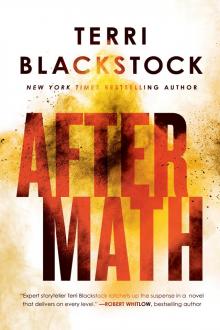 Aftermath
Aftermath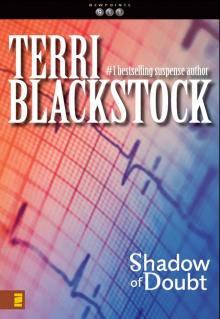 Shadow of Doubt
Shadow of Doubt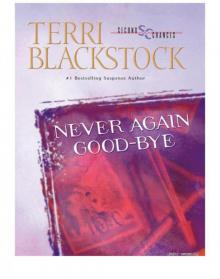 Second Chance - 05 - Never Again Good-Bye
Second Chance - 05 - Never Again Good-Bye Miracles
Miracles Broken Wings
Broken Wings the Cape Refuge (Cape Refuge Series Book 1)
the Cape Refuge (Cape Refuge Series Book 1)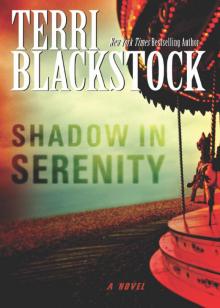 Shadow in Serenity
Shadow in Serenity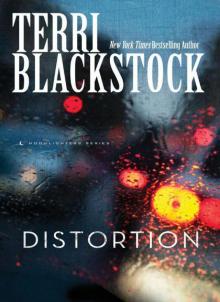 Distortion (Moonlighters Series)
Distortion (Moonlighters Series)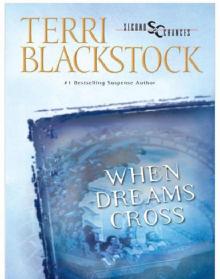 Second Chance - 02 - When Dreams Cross
Second Chance - 02 - When Dreams Cross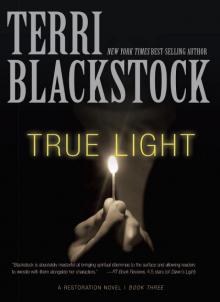 True Light
True Light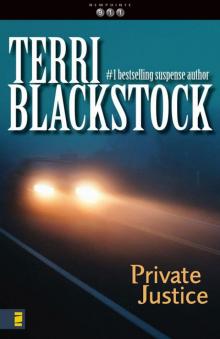 Private Justice
Private Justice Last Light
Last Light Downfall (An Intervention Novel)
Downfall (An Intervention Novel)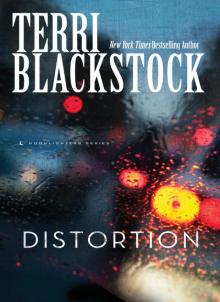 Distortion: Moonlighters Series: Book Two
Distortion: Moonlighters Series: Book Two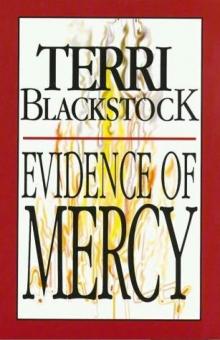 Evidence of Mercy
Evidence of Mercy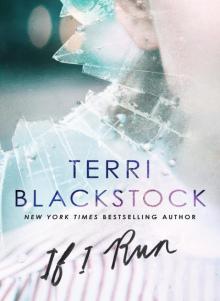 If I Run
If I Run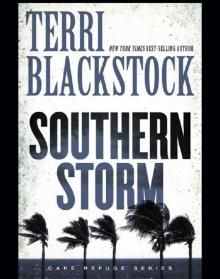 Southern Storm
Southern Storm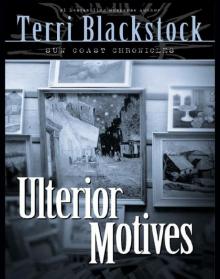 Ulterior Motives
Ulterior Motives Emerald Windows
Emerald Windows River's Edge
River's Edge Intervention
Intervention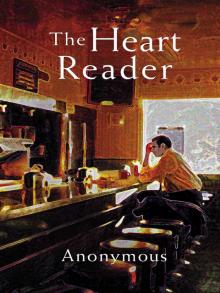 The Heart Reader
The Heart Reader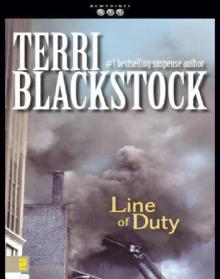 Line of Duty
Line of Duty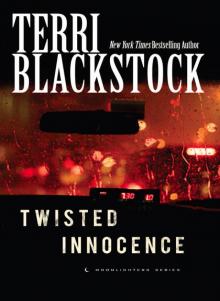 Twisted Innocence
Twisted Innocence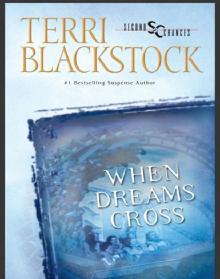 When Dreams Cross
When Dreams Cross Downfall
Downfall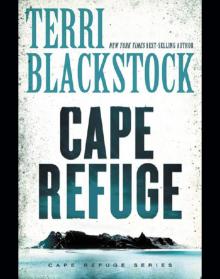 Cape Refuge
Cape Refuge Breaker's Reef
Breaker's Reef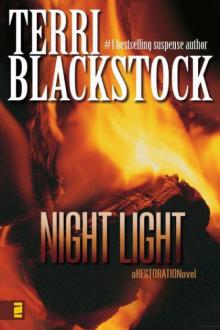 Night Light
Night Light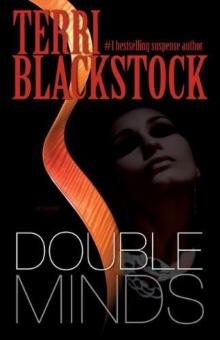 Double Minds
Double Minds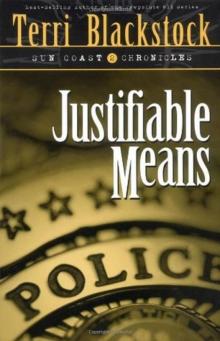 Justifiable Means
Justifiable Means Covenant Child
Covenant Child If I Live
If I Live If I'm Found
If I'm Found Vicious Cycle
Vicious Cycle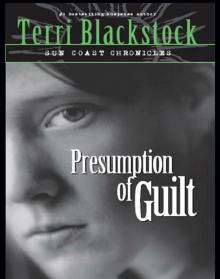 Presumption of Guilt
Presumption of Guilt Trial by Fire
Trial by Fire Word of Honor
Word of Honor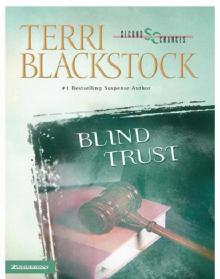 Second Chance - 03 - Blind Trust
Second Chance - 03 - Blind Trust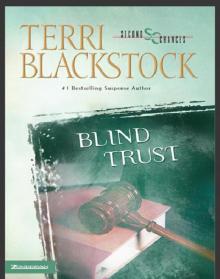 Blind Trust
Blind Trust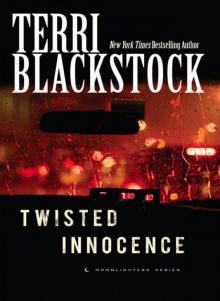 Twisted Innocence (Moonlighters Series Book 3)
Twisted Innocence (Moonlighters Series Book 3)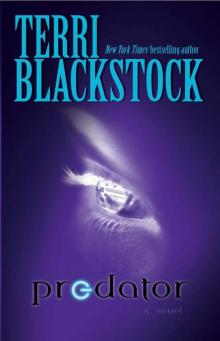 Predator
Predator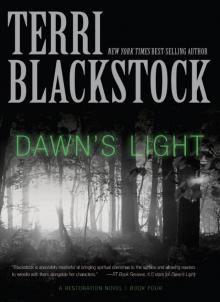 Dawn's Light
Dawn's Light Chance of Loving You
Chance of Loving You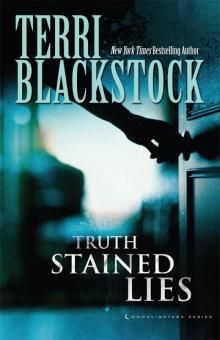 Truth-Stained Lies
Truth-Stained Lies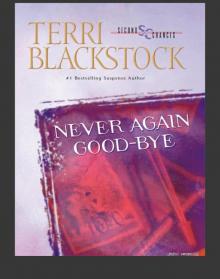 Never Again Good-Bye
Never Again Good-Bye Catching Christmas
Catching Christmas